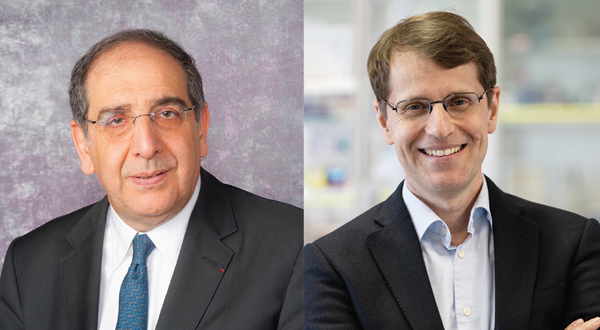Botond Roska and José-Alain Sahel have been awarded the Wolf Prize in Medicine for their pioneering work on restoring vision to blind patients using optogenetic therapy.
The Wolf Prize, considered one of the most prestigious international awards, recognizes outstanding achievements in various fields including medicine.
Botond Roska, Director at the Institute of Molecular and Clinical Ophthalmology Basel (IOB) and Professor at the University of Basel, and Sahel, Chair of Ophthalmology at the University of Pittsburgh School of Medicine and Chair of IOB’s Scientific Advisory Board, have collaborated since 2001. Their work focuses on optogenetic vision restoration, a technique that creates light-sensitive cells using genes derived from algae, to treat degenerative retinal diseases.
In 2021, they reported groundbreaking results from an early-stage clinical trial with blind retinitis pigmentosa patients. One patient who completed the full study protocol was able to detect and move objects placed before him within months of treatment. This work, which was done in collaboration with researchers from the Institut de la Vision in Paris, marked the first proof-of-concept for optogenetics in human disease. Despite initial scepticism, Roska and Sahel persevered, recognizing the potential of optogenetics for treating retinal diseases due to its mutation-independent approach and the accessibility of the eye’s optical system.
The collaboration between Roska, a basic scientist with an MD, and Sahel, an accomplished clinician and expert in translational research, has proven highly complementary. Their work represents a significant milestone in treating blinding conditions affecting millions worldwide, with promising results emerging from ongoing clinical trials. The Wolf Prize in Medicine acknowledges their exceptional contributions to the field of ophthalmology.
